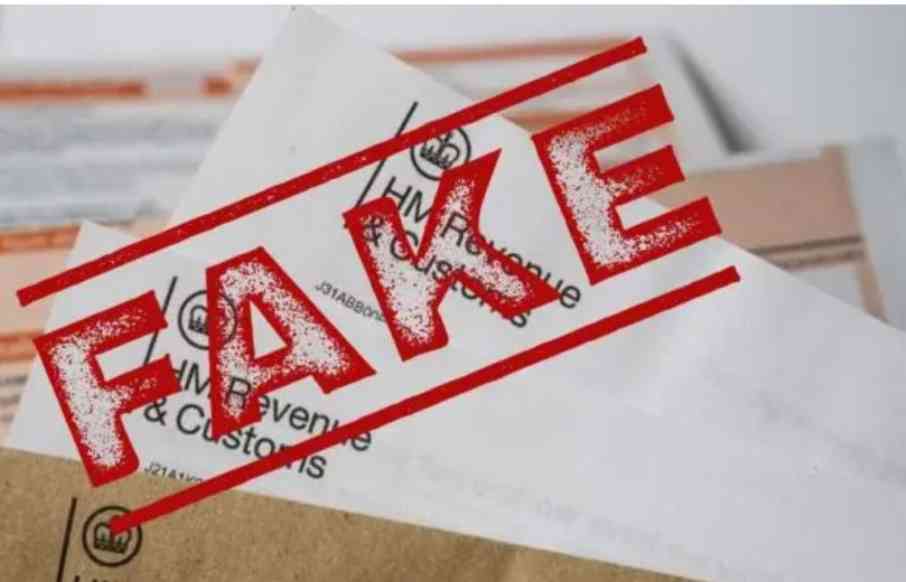Beware of HMRC Scams: Protecting Yourself from Fraudulent Activities
- Authors
-
-

- Name
- Patrick Maflin
-

Beware of HMRC Scams: Protecting Yourself from Fraudulent Activities
In an age where digital transactions and online interactions dominate our lives, the threat of scams looms larger than ever.
One particularly prevalent type of scam involves fraudsters impersonating officials from HM Revenue and Customs (HMRC).
These scams can take various forms, from phishing emails to threatening phone calls, all designed to deceive unsuspecting individuals and steal their personal information or money.
In this article, we will delve into the tactics used by scammers, how to recognise them, and most importantly, how to protect yourself from falling victim.
The Tactics of HMRC Scammers
HMRC scams typically involve communication from someone claiming to represent HMRC.
They may contact you via email, phone call, text message, or even through social media platforms.
Here are some common tactics employed by these fraudsters:
Phishing Emails
Scammers send emails that appear to be from HMRC, often with official-looking logos and language.
These emails may claim that you are owed a tax refund or that you owe money to HMRC.
They'll usually ask you to click on a link or download an attachment, which could lead to malware installation or prompt you to enter personal and financial details on a fake website.
Phone Calls
Another common tactic is phone calls where scammers pretend to be HMRC officials.
They may use intimidation tactics, threaten legal action or arrest if you don't pay a supposed outstanding tax debt immediately.
They often request payment via bank transfer, gift cards, or cryptocurrency, making it difficult to trace and recover funds once transferred.
Text Messages
Scammers also send text messages, claiming to be from HMRC, informing recipients of a tax rebate or penalty.
They'll usually provide a link to a website where victims are prompted to input their personal and financial information.
Recognising HMRC Scams
Recognising HMRC scams is crucial in protecting yourself from falling victim.
Here are some signs to watch out for:
Unsolicited Communication
HMRC will never contact you out of the blue via email, phone, or text message to request personal or financial information or demand immediate payment.
Threats or Intimidation
Genuine HMRC officials will never threaten you with legal action, arrest, or deportation over the phone or via email.
Suspicious Links or Attachments
Be cautious of any links or attachments in emails or messages, especially if they prompt you to provide sensitive information or download files.
Spelling and Grammar Errors
Scam communications often contain spelling and grammar mistakes, which are uncommon in official correspondence from HMRC.
Protecting Yourself from HMRC Scams
To protect yourself from HMRC scams, follow these tips:
Verify Requests
If you receive a communication claiming to be from HMRC, verify its authenticity by contacting HMRC directly using the contact details on their official website.
Stay Informed
Stay updated on the latest scam tactics and warnings issued by HMRC. They regularly publish guidance on how to spot and report scams on their website.
Protect Personal Information
Never share sensitive information, such as your National Insurance number, bank details, or passwords, with anyone who contacts you unexpectedly.
Enable Security Measures
Use spam filters on your email account, enable two-factor authentication where possible, and regularly update your antivirus software to protect against malware.
Report Suspected Scams
If you believe you've been targeted by an HMRC scam, report it to HMRC and Action Fraud immediately.
This helps authorities track down and prevent further fraudulent activities.
HMRC scams continue to pose a significant threat to individuals, exploiting fear and uncertainty to deceive unsuspecting victims.
By staying vigilant, recognising the signs of scams, and taking proactive measures to protect yourself, you can reduce the risk of falling victim to these fraudulent activities.
Remember, if something seems too good to be true or feels suspicious, it's always better to err on the side of caution and verify the legitimacy of the communication before taking any action.
Stay informed, stay safe, and protect yourself from HMRC scams.


